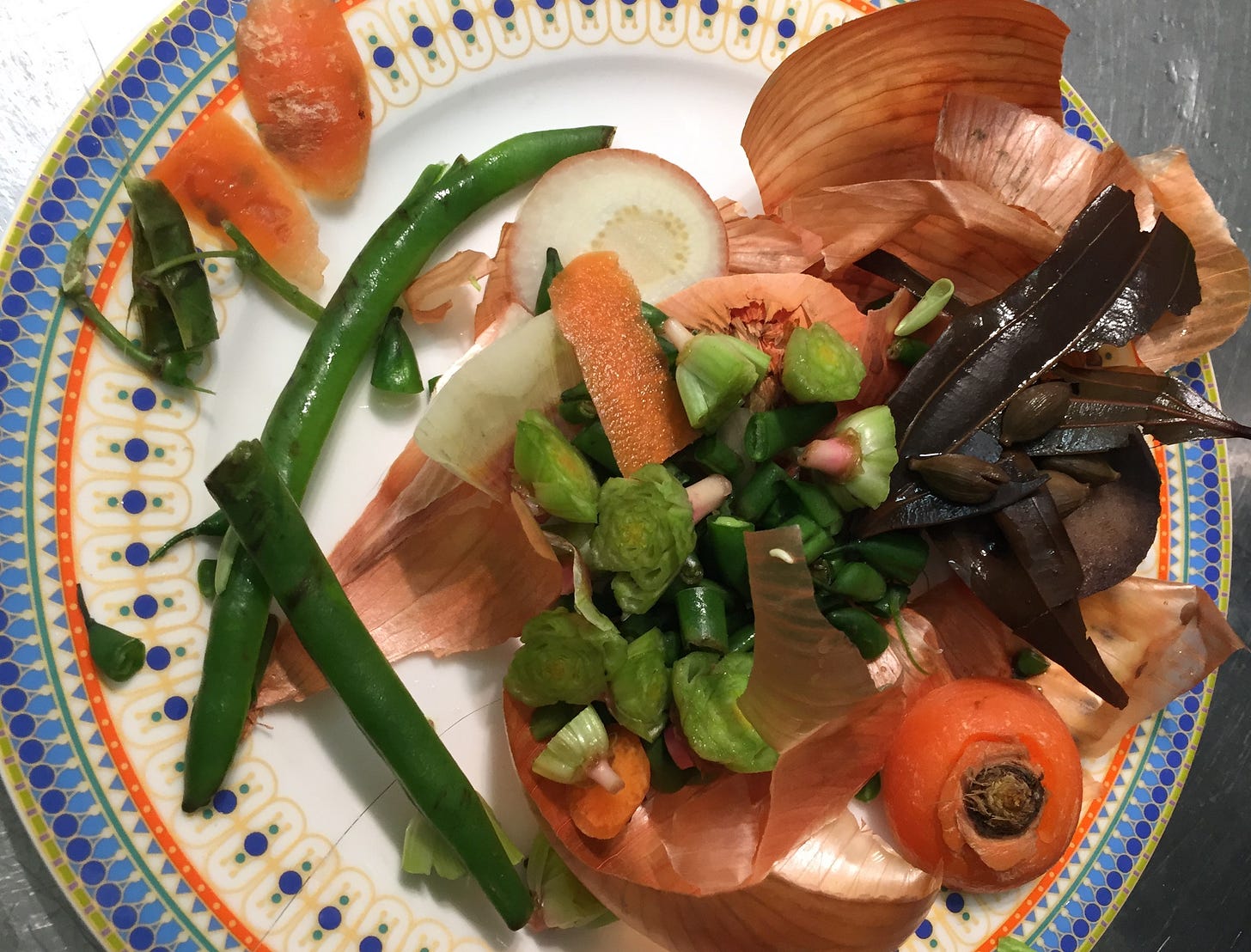A rather different set of friends: followup
I’m making friends with my vegetable peel
This week, I followed the advice on the Love Food Hate Waste website, and didn’t peel my pumpkin, kumara or swede. Skin and all, they went into my curried pumpkin soup, which was going to get blended once it was cooked, so I didn’t think that the skin would make much difference. I admit that I did come across the occasional fragment of pumpkin skin in the blended soup, but overall I think I can count my unpeeled vegetable soup as a success.
Not peeling vegetables is eighth on the list of “top-ten” list of suggestions to reduce food waste. Some of the other suggestions on that list are fairly obvious, such as freezing bread so it doesn’t go stale or mouldy, but others might be more surprising. One that I’d never heard was that onions and potatoes should not be stored together. This suggestion is intriguing, not least because I’ve been unable to find out exactly why this is. A number of sites suggest that onions release a gas that encourages sprouting in potatoes. However, most of them also say that gas is ethylene. That’s definitely incorrect, because ethylene actually suppresses sprouting in potatoes, and is used commercially for this purpose. Nor could I find whether onions encourage other vegetables, such as kumara, to sprout, but I’m really curious, because right now I have the two vegetables stored together. If you have any insight into this, I’d love to hear about it.
Waste from tonight’s curry, most of which can be used for stock (except the mouldy bits)
New Zealand isn’t the only country trying to reduce food waste. There are some useful suggestions on the websites from other countries as well. The American site has a top-25 list of suggestions as well as a “Fridge Reality Check”, which promises to be uncomfortable, although valuable, for people like me who tend to forget things at the back of the fridge. The fridge reality check asks you to list everything in your fridge that has gone off or has passed its expiry date, then helps you work out the reasons why, as well as how you can do better in future. There’s a good website for Ireland as well. The Irish site has an A-Z of foods, with information about different storage methods, as well as how to use up leftover parts, for 62 different types of food.
For understanding the bigger picture about food waste, it’s worth taking a look at the information from the United Nations Food and Agriculture Organisation. The organisation’s goal is to achieve food security for everyone. With so much food wasted worldwide, reducing food waste is an important part of that goal. There’s a good article on simple innovations that are helping to reduce waste in a number of different countries. The article highlights how even simple changes, like replacing the containers used to transport food, can make a big difference.
Finally, for dealing with the scraps that you can’t avoid, here’s an article which looks at methods for composting food waste. Some councils have gone a step further, and collect food waste at the kerb side. New Plymouth has a separate food scraps bin, while Christchurch has a green waste bin that accepts food scraps as well as garden waste. These options make it easier to keep food waste out of landfills, and therefore methane out of our atmosphere.
Did you enjoy this article? Subscribe now and a new article will be delivered directly to your inbox every Sunday.
The Turnstone comes out once a week. Usually, I write an original article once a fortnight and on alternate weeks I follow up with more information or some related links.
As always, let me know if you have any questions that you’d like me to answer through my articles.



